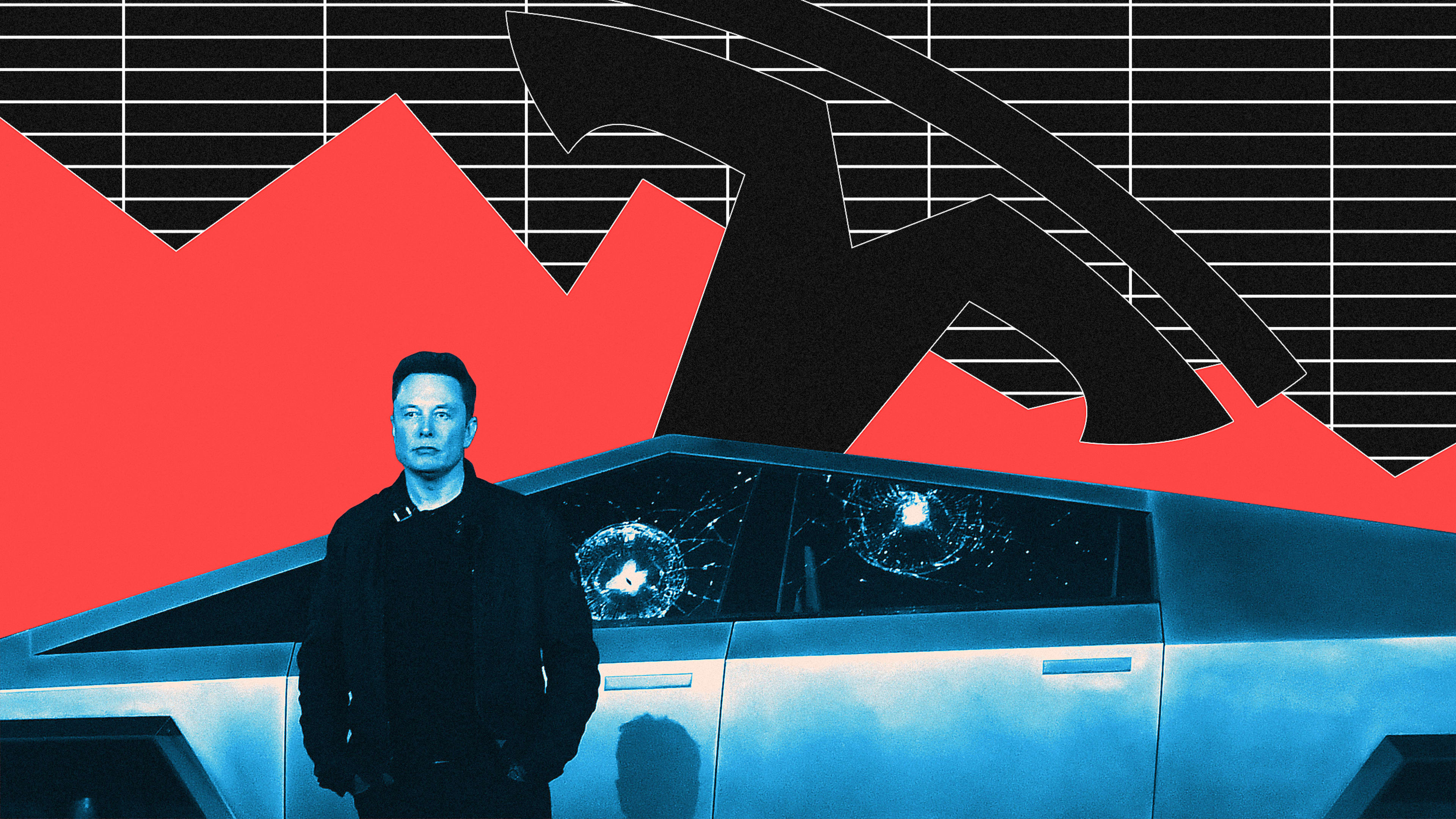Branded is a weekly column devoted to the intersection of marketing, business, design, and culture.
Love him or hate him, Elon Musk attracts as much attention as any CEO in memory. The latest example: this week’s Tesla earnings call, an obligatory event that at times seemed to be anticipated as a borderline cultural happening.
Of course, a public company with a whopping market cap like Tesla’s will draw plenty of investor interest in its latest numbers. Of course, there were the usual preview roundups from financial media like CNBC and DealBook, offering urgent speculation about what Tesla management might have to say in its Tuesday earnings release and after-the-close conference call. Outlets including Axios were part of the pack, too; Business Insider stood out by publishing “live updates” throughout the day, turning every analyst preview note into its own news item, then live-blogging the call itself. And while no one seems to track and provide conference call audience stats (yet), the listenership on an official call stream on YouTube was well over 40,000 during the broadcast (and has since topped 200,000 listens).
Admittedly, that’s nowhere near the number of people who listened to The Tortured Poets Department right after its midnight drop. But at the very least, it suggests an audience beyond analysts, institutional investors, and journalists, and others who are professionally obligated to sit through earnings calls. Is this just standard Musk mania, or indicative of some broader shift toward treating earnings calls, of all things, like some kind of borderline, FOMO-driven quasi-entertainment?
There are plenty of Musk- and especially Tesla-specific factors. Heading into the call, Tesla shares had been hammered—down 40% for the year—particularly after the company disclosed disappointing sales among other bad news, ranging from layoffs to a Cybertruck recall, all threatening its “Magnificent Seven” status as one of tech’s most valuable and fast-growing stocks. This was likely exacerbated by Tesla’s popularity with retail investors: Individual investors have bought close to $6 billion in TSLA stock this year alone, and their share of its total trading volume is more than double that of other big tech firms including Microsoft and Nvidia, according to the Wall Street Journal. It’s also one of the most heavily shorted stocks, adding to the scrutiny.
And then, there’s Musk himself. While investors and others could (and did) extensively debate and deconstruct Tesla’s quarterly numbers on X, Reddit, and elsewhere, when they were released hours before the investor call, actual live Musk commentary is its own thing. Would he tell some perceived enemies to go F themselves? Rant about the Delaware courts? Weigh in on presidential politics? Few executives have more options for remarks that could move a share price, and probably none are more willing to do so.
But this isn’t just a Musk thing; the broader context of investor culture has changed, too. It’s not quite a replay of the 1990s, when it was briefly fashionable to be conversant in certain ticker symbols, mutual funds, and the names of CNBC hosts. The new version of pop market interest—driven by factors like the rise of Robinhood and the birth of meme stocks—feels both more intense and cult-ier. The conference call, itself now thoroughly democratized by online availability to all, not just Wall Street insiders, becomes both a can’t-miss for edge-seeking investors, and a rare moment of shared, almost communal, focus. Like a midnight album drop, it’s for the hard core.
And like much of Internet-driven culture, it often attracts attention for seeming to have attracted attention. As expected, Tesla’s official numbers confirmed drops in revenue and profits, and said deliveries were likely to be “notably lower” this year. But in the after-close call on Tuesday evening, Musk did not say anything truly crazy: Sounding subdued, almost drowsy, he promised that new models were on the way and emphasized Tesla’s commitment to autonomous vehicles.
That said, some of his suggested timelines—for a more affordable model (early 2025 or even this year), and next year for selling autonomous humanoid robots—seemed aggressive. And there was a reference to Tesla solving the autonomy puzzle “even if I’m kidnapped by aliens,” but that was pretty tame by his standards. Yet, to underscore the latter point, he added: “If somebody doesn’t believe Tesla is going to solve autonomy, I think they should not be an investor in the company.” Later, he compared Tesla’s AI efforts to Amazon’s development of its cash-cow Web Services business.
Tesla’s share prices bumped up in after-hours trading, and were up around 10% in midday trading Wednesday. Apparently investors liked what they heard. I guess you had to be there.
Recognize your brand’s excellence by applying to this year’s Brands That Matter Awards before the early-rate deadline, May 3.
